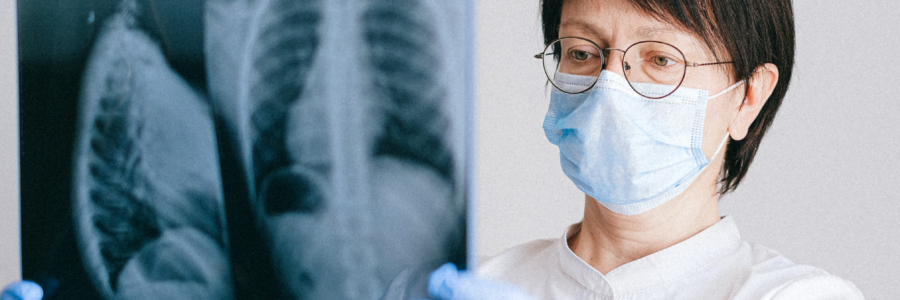
Pneumonia is an infection that inflames the air sacs in the lungs. This infection may cause the air sacs to fill with fluid or pus, causing symptoms ranging from mild to severe such as cough with phlegm, fever, chills, and difficulty breathing.
A variety of organisms, including bacteria, viruses, and fungi, can cause pneumonia. Therefore, it is not limited to one microorganism.
What are the symptoms of pneumonia?
The symptoms of pneumonia range from mild to severe. This depends on the type of microorganism causing pneumonia, the patient’s age, and overall health. Common symptoms of pneumonia may include:
- Chest pain when you are breathing or coughing.
- Cough, which may produce phlegm.
- Excessive fatigue
- Fever, sweating and chills.
- Lower than normal body temperature.
- Nausea, vomiting and diarrhea.
- Shortness of breath.
What are the different types of pneumonia?
There are more than 30 different known types of pneumonia, and they’re grouped by root cause. The most common types of pneumonia include:
- Bacterial pneumonia: This type is caused by bacteria. It usually occurs when the body is weakened by illness, poor nutrition, or impaired immunity, and the bacteria are able to work their way into the lungs. This type of pneumonia can affect all ages, but people who abuse alcohol, smoke cigarettes, have recently had surgery, have a respiratory disease or viral infection, or have a weakened immune system are at a bigger risk of contracting it.
- Viral pneumonia: This type is caused by viruses such as the flu, and is responsible for about one-third of all pneumonia cases. You may be more likely to get bacterial pneumonia if you have viral pneumonia.
- Mycoplasma pneumonia: This type has different symptoms and physical signs than bacterial and viral pneumonia. It is referred to as atypical pneumonia due to those factors. It is usually caused by the bacterium Mycoplasma pneumoniae affecting the respiratory system. It generally causes mild pneumonia that affects all age groups.
How is pneumonia diagnosed?
If pneumonia is suspected, your doctor may recommend one of the following tests:
- Blood tests: Blood tests are used to confirm an infection and to try to identify the type of microorganism causing the infection.
- Lung X-ray: This helps your doctor diagnose pneumonia and determine the extent and location of the infection. However, it can’t tell your doctor what kind of microorganism is the cause of pneumonia.
- Pulse oximetry: This measures the oxygen level in your blood since pneumonia can prevent your lungs from moving enough oxygen into your bloodstream.
- Sputum test: A sample of fluid from your lungs (sputum) is taken after a deep cough and analyzed to help locate the cause of the infection.
Is pneumonia contagious?
The cause of pneumonia determines whether it will be contagious or not. Pneumonia is contagious just like the flu when it is caused by infectious microbes. However, pneumonia may not be contagious when the cause is related to poisoning like inhalation of chemical fumes. In addition, there is a vaccine available for pneumonia.
How is pneumonia treated?
Pneumonia is best treated by qualified medical professionals as there is no over-the-counter solution for treating the root cause. You can consult with a doctor about your symptoms via an in-clinic or virtual appointment.
If your symptoms persist or become worse, you should consult with a doctor.

